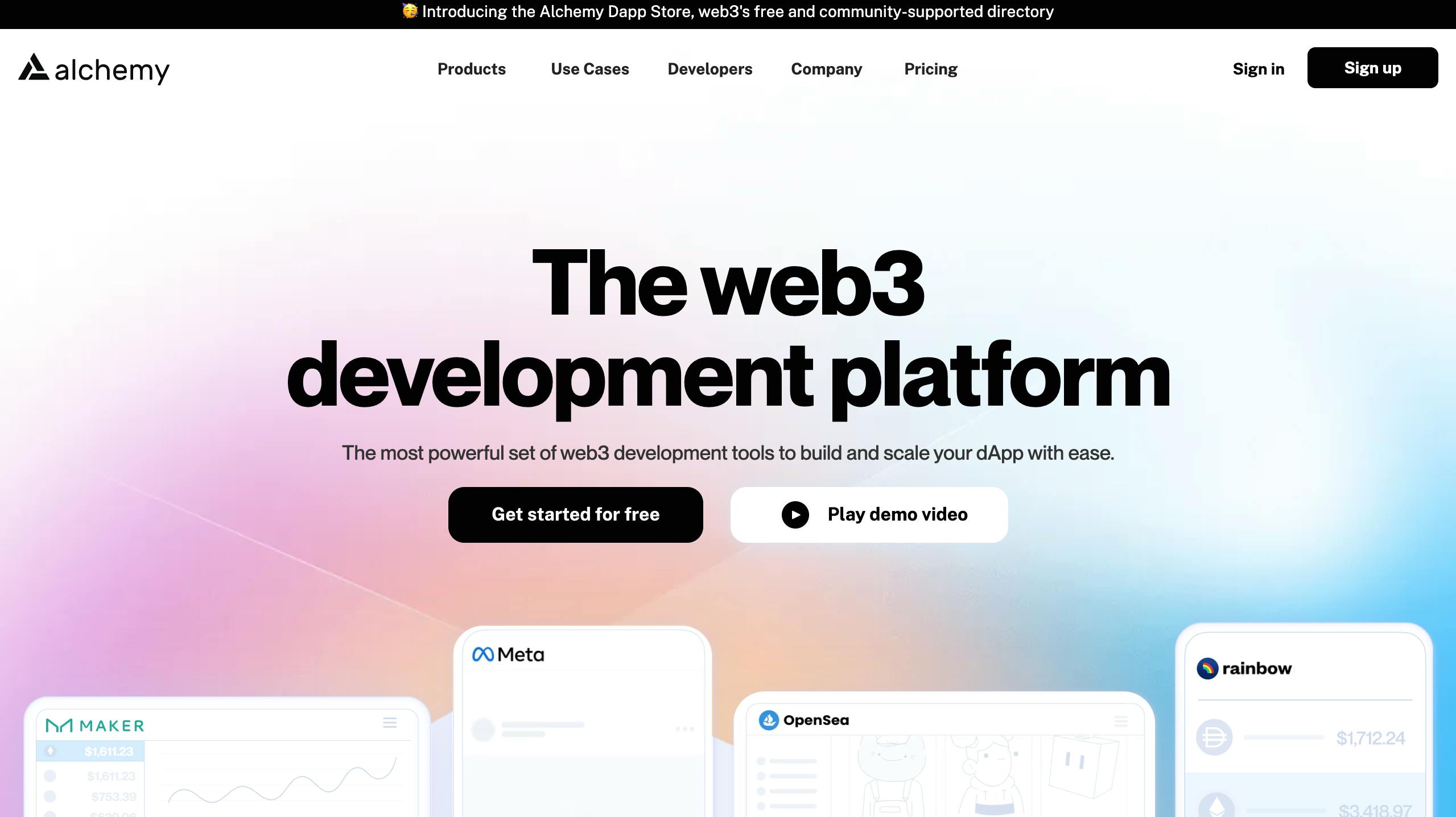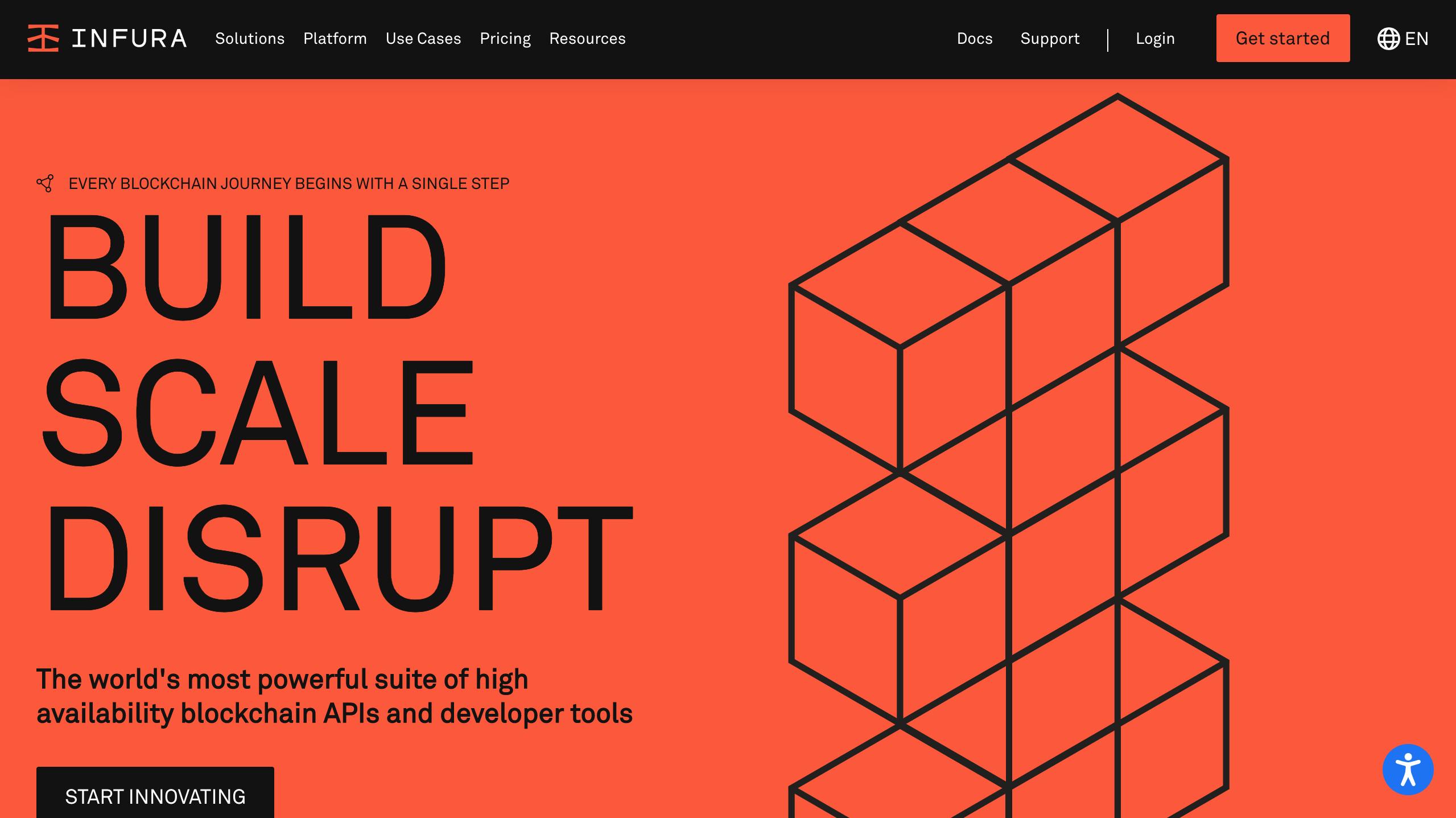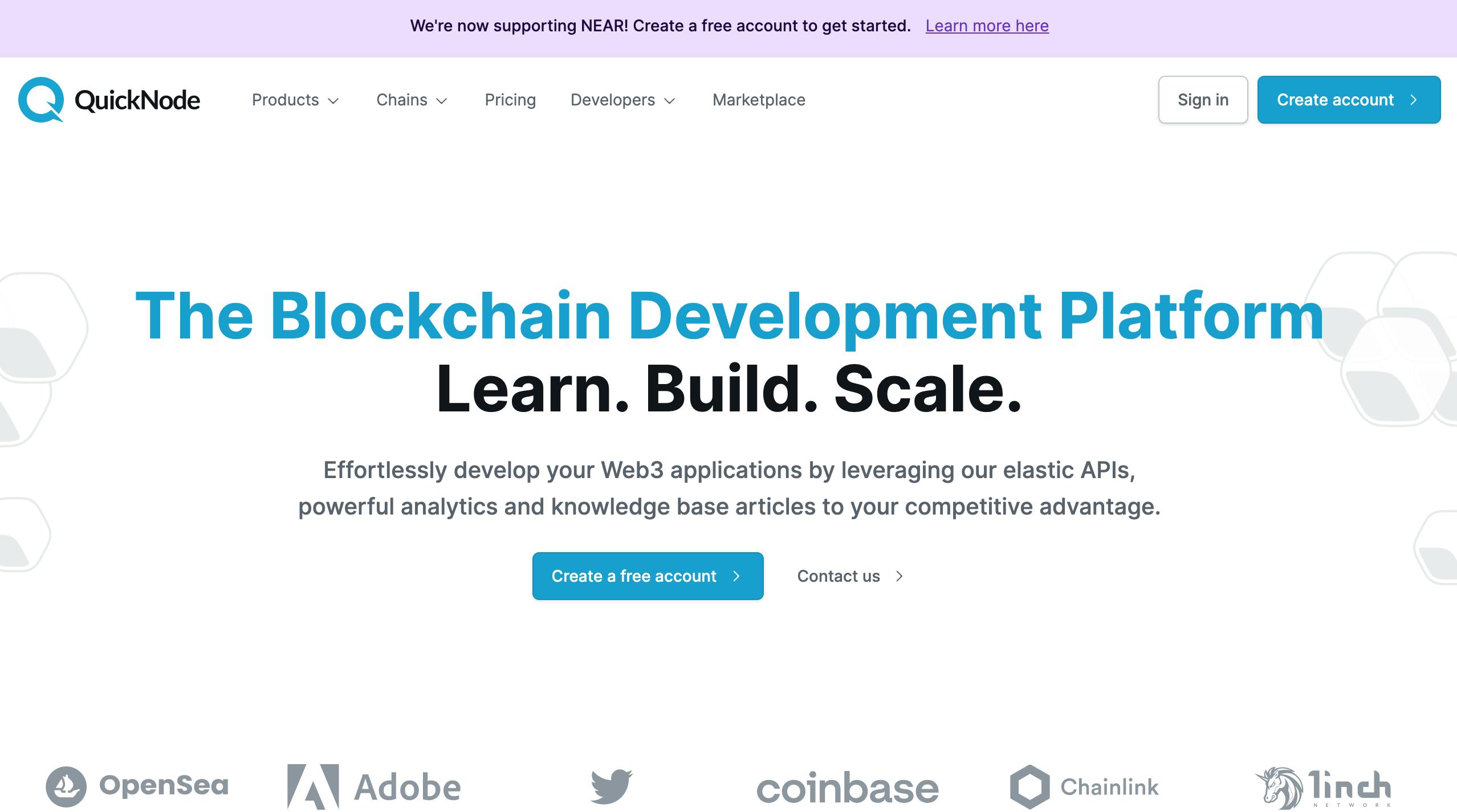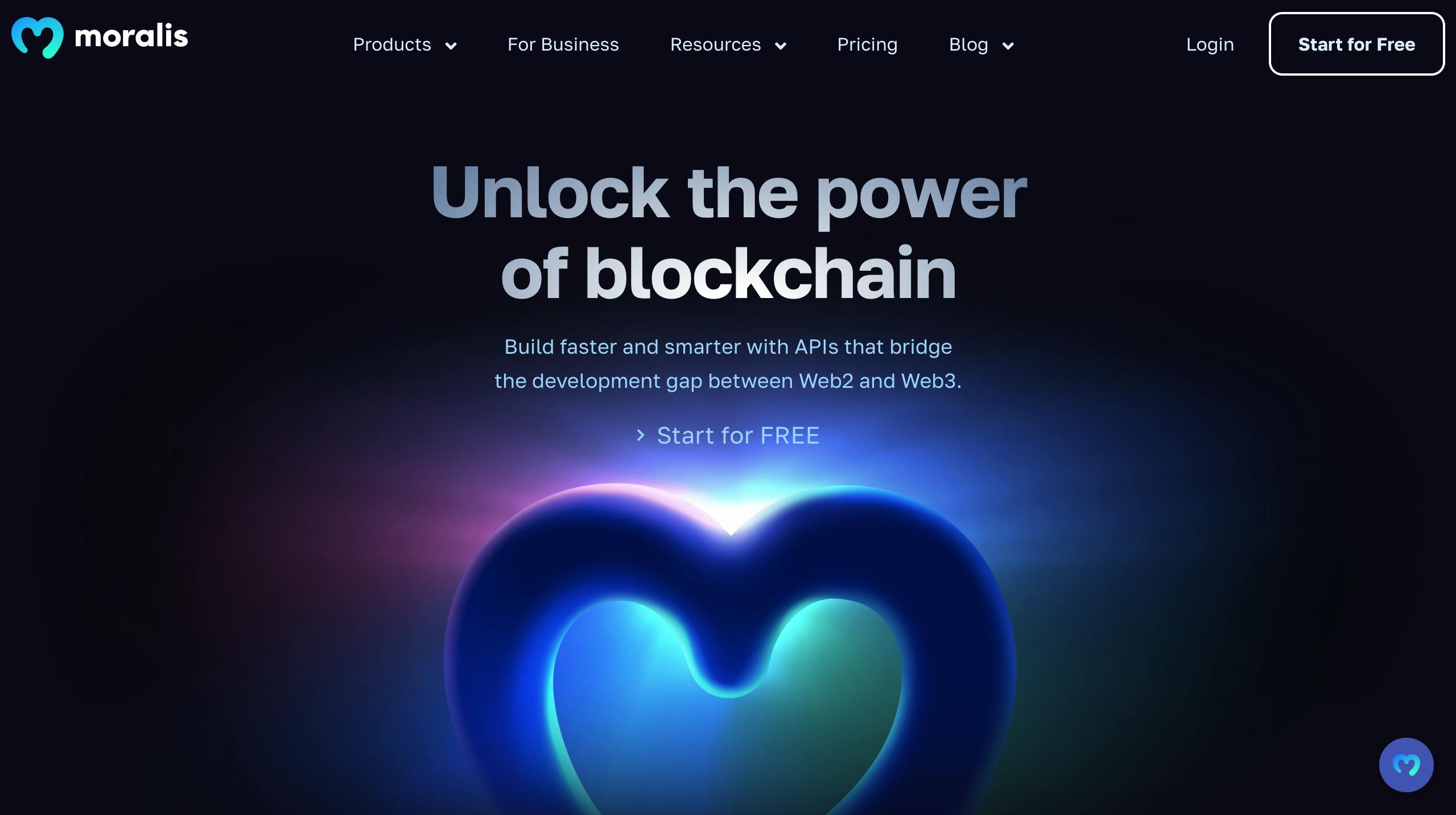
What is a Blockchain Node provider
A Guide to understanding Blockchain Node Providers
Setting up and maintaining a node can be quite challenging, especially if your business depends on the blockchain. This problem has paved the way for a section in the blockchain industry, Node providers. These companies provide a way for you to access and make use of the blockchain without having to do the hard work associated with running and maintaining a node.
In this article, we would understand what a node provider is and how it works.
What is a node
A node is any electronic device connected to a blockchain and possesses an IP address. - Origin Stamp
Gadgets like watches, routers, laptops, and mobile phones all serve as communication endpoints while connected to the internet despite having different functions.
This is no different for the blockchain, in the sense that different nodes have different functions. Some nodes store transaction records while others can only send and receive cryptocurrency.
Nodes in a blockchain network
The Blockchain is unique because of its decentralization, which is a property that allows it to transfer a network's power from a single entity to everyone linked to it. This is made possible via nodes; the number of nodes a blockchain has connected to it determines how secure and decentralized it is.
When you hear about blockchain hacks, what it means on some occasions is that hackers gained access to the majority of the nodes in the network and manipulated them, this is also known as the 51% attack and it usually occurs in blockchains that have fewer nodes.
It is essential to keep in mind that different nodes in a blockchain network perform a variety of tasks; some are responsible for recording every transaction, some for confirming transactions, and others are just able to process transactions.
Types of Nodes
Blockchain nodes are divided into two main types: full and partial nodes. They are further divided into different unique types of nodes but we won’t be going into that in this article.
Full nodes
These are usually computers that store the entire blockchain data, Ethereum, for example, is 891.60GB in size, which means an Ethereum full node has the capacity to store that amount of blockchain data. When a new block is mined, full nodes check that the block is genuine before adding it to the blockchain.
It is important to note that a blockchain mining node (Blockchain Miner) is different from a full node, a miner is responsible for verifying transactions and mining new blocks, but a full node stores the blockchain and verifies blocks, it can become a miner if it has mining software too.
Let’s make this clearer👇🏼👇🏼
A full node needs a huge amount of storage to store the blockchain, you can use your personal computer as a full node, you’ll just need enough memory space.
On the other hand
A miner needs a considerable amount of computing and processing power to mine blocks of transactions. You can’t use your personal computer to mine a block, you’ll need more computing power and electricity.
Partial or light nodes
These are usually mobile devices that are only capable of making transactions. It stores only a part of the blockchain that allows it to make and process transactions. This node is used mainly for wallet and Decentralized application (Dapp) purposes.
Light nodes only download block headers; they don't download the entire block. Only a summary of the contents of the blocks is provided in these headers. The light node requests a full node for any additional information it needs.
How to deploy a node
Running a node means that you should have a node software running on a dedicated machine and constantly online.
A home computer can run a node, but an industry-standard machine will provide your node with better performance. However, when selecting hardware, the blockchain should be taken into consideration. Different blockchains have various specifications.
To Run an Ethereum node for instance you’ll need to fulfill these hardware requirements;
4 - 8 GB of RAM.
2 TB SSD.
Intel NUC, 7th Gen or higher.
Wired internet connection.
Display screen and keyboard.
You also should be able to use the command line interface or download the DappNode operating system to your computer in order to fulfill the software requirements. Click here for further details on how to manage an Ethereum node.
Node Providers
Node providers run node software/clients behind the scenes eliminating the need to do it natively. Instead of interacting with the blockchain mainet or test net. We send transaction requests to node providers using an API, and these node providers in turn interact with the blockchain to perform the given API instructions.
Benefits of Node Providers
They remove the complexity of scripting or coding.
They allow us to focus more on building scalable and performance-oriented products.
Integration with node providers is as easy as changing one line of code.
With a single API call, you can integrate multiple API instructions on a node provider without having to write code.
Drawbacks of Node Providers
Node providers are centralized networks. This means that if you’re building a product that prioritizes decentralization, it would be best if you run your own node.
You don't have complete control over your node because node providers have restrictions on the types of customization they allow and have established rules.
Examples of node providers
Some of the popular node providers we have are;
Alchemy

Trusted by some of the biggest tech companies including, Adobe, Coinbase, Aave, Open sea, and so on. Alchemy has processed over 30 billion in transaction volume and has over 10 million users. It provides one of the fastest node services called the supernode and has one of the biggest free tiers.
Infura
Also known as one of the most popular node providers for Ethereum, with over 350,000 developers using its service Infura provides a suite of APIs and tools that gives access to the IPFS network.

Quicknode

Founded in 2017, Quicknode provides lighting speed access to eleven blockchain networks. They offer elastic and dedicated nodes for your apps and Dapps. They also provide real-time node analytics and customization
Moralis

Moralis provides backend tools for blockchain Dapps, it provides support for Ethereum, Binance, and polygon. It also has an SDK that allows you to query data from different blockchains.
Conclusion
Blockchain node providers have changed the way we interact with the blockchain, with a single API call they can perform multiple API instructions at the same time. There are several other node providers that are not mentioned in this article, some of which might pick your interest, so, I'll advise you make detailed research before picking anyone.
